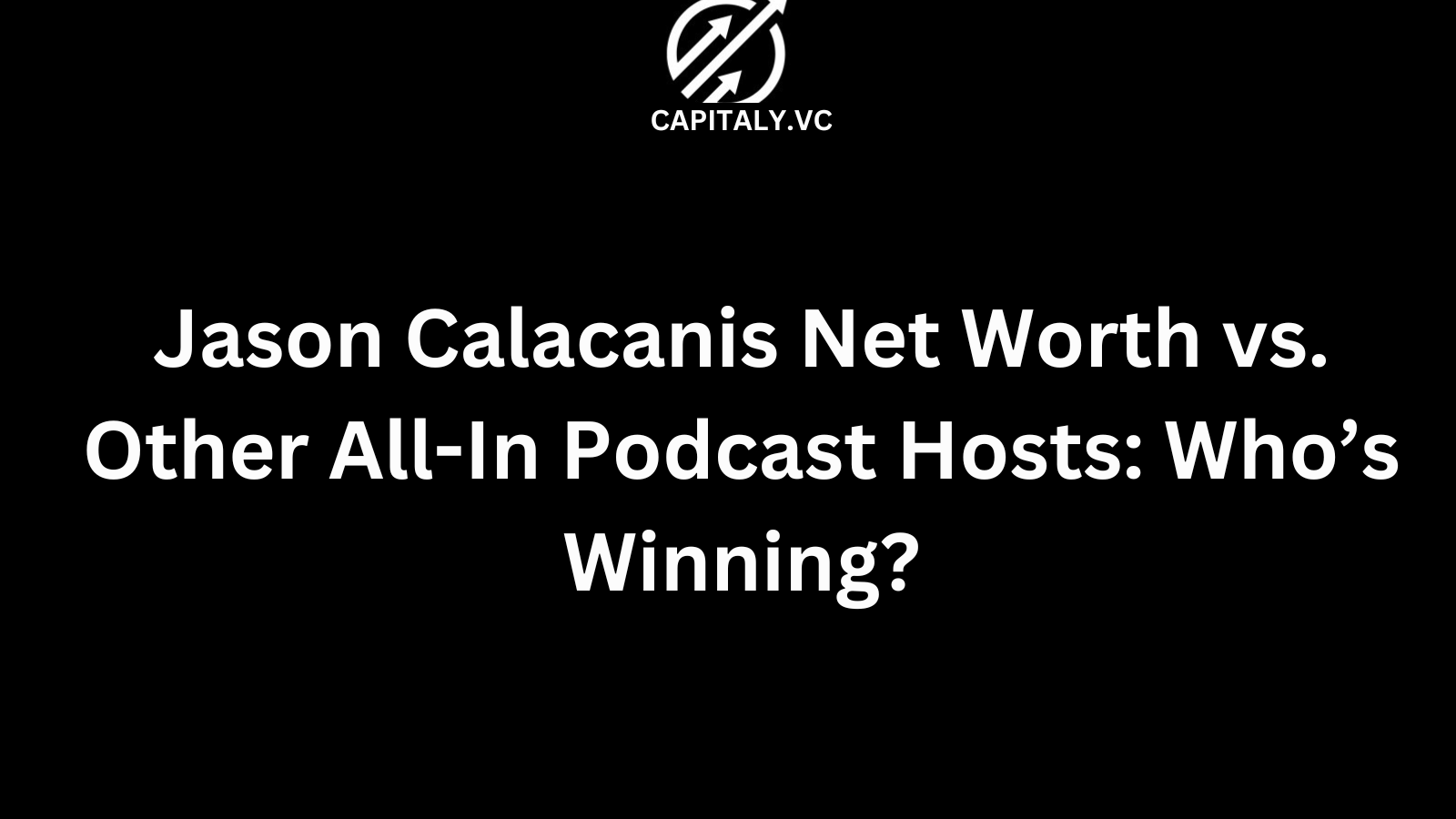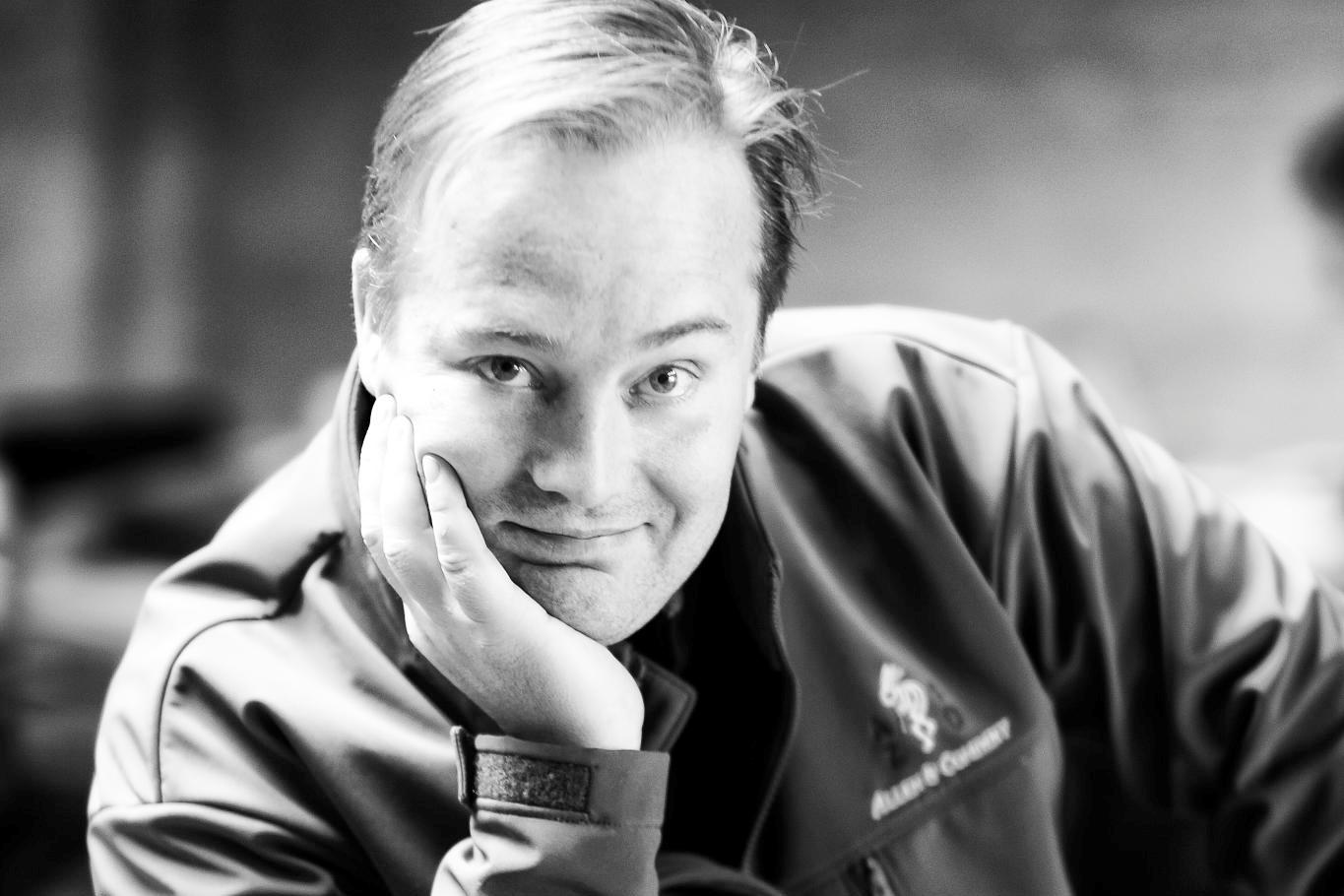Jason Calacanis Net Worth vs. Other All-In Podcast Hosts: Who’s Winning?
Jason Calacanis Net Worth vs. Other All-In Podcast Hosts: Who’s Winning?

Jason Calacanis’ net worth vs. other All-In Podcast hosts is a question that pops up every time the show trends.
People want to know — who’s actually winning financially?
Is it Jason, Chamath, David, or Friedberg?

In this breakdown, I’ll go host-by-host, pull together their biggest money moves, and highlight where each stands today.
You’ll get context, not just numbers, so you can see how they built wealth — and what’s next for each.
1. The All-In Podcast Wealth League Table
While estimates vary, most lists put Chamath Palihapitiya on top, followed by David Sacks, Jason Calacanis, and then David Friedberg.
But that order changes depending on whether you measure liquid cash, equity stakes, or long-term assets.
For more on valuation thinking, see our blog post: AI Startup Valuations: The Reality Check You Need for Fundraising Success.
2. How Jason Calacanis Built His Fortune
Jason’s wealth is rooted in early angel investments.
Uber is the headline, but he’s backed over 300 startups.
He monetizes influence with books, conferences, and media.
For more on Jason’s investing strategy, see our blog post: Catch Jason Calacanis’ Eye: The Ultimate Guide to Landing Angel Investment from Mr. Angel Himself.
3. Jason Calacanis’ Estimated Net Worth in 2025
Most estimates put Jason between $100M–$150M.
Much of it is in private equity stakes that could either skyrocket or crash.
For a deeper profile, see our blog post: Jason Calacanis Net Worth in 2025: The Complete Breakdown of His $150M Fortune.
4. Chamath Palihapitiya: The Billionaire Benchmark
Chamath’s net worth is near $1B, even after recent SPAC challenges.
His fortune started at Facebook and scaled through venture investments.
For more on market timing, see our blog post: Venture Capital Trends to Watch in 2025.
5. David Sacks: The SaaS Cash Machine
Sacks built Yammer, sold it to Microsoft for $1.2B, and now runs Craft Ventures.
Portfolio includes unicorns like Bird and Pipe.
Net worth: $400M–$500M.
For more on his 2025 positioning, see our blog post: David Sacks Net Worth After Becoming Czar of AI and Crypto.
6. David Friedberg: The Quiet Operator
Friedberg’s wealth comes from selling The Climate Corporation for $1.1B.
Big on agtech and biotech plays now.
For more, see our blog post: David Friedberg Net Worth in 2025: The Billionaire’s Journey to Agricultural Tech Dominance.
7. Income Sources Beyond the Podcast
All four earn far more from investments than podcast revenue.
The show is brand fuel — not their primary paycheck.
For more on using media to raise capital indirectly, see: How Capitaly.vc Helps Founders Craft Winning Pitches to Raise Capital.
8. Who Has the Most Diversified Portfolio?
Chamath and Sacks spread their capital across public equities, startups, funds, and real estate.
Jason leans heavier on early-stage startup equity.
9. The Role of Early Tech Bets
One bet changed everything:
- Jason → Uber
- Chamath → Facebook
For more on early-stage risk, see: Raising Capital in 2025: The Complete Founder’s Playbook.
10. How Public Perception Impacts Deal Flow
Better brand → better deal flow → more wealth compounding.
For brand leverage tips, see: How to Build an Online Network That Attracts Investors.
11. Real Estate and Lifestyle Assets
They own high-end homes — from Bay Area estates to Hawaii retreats.
Chamath’s holdings are public; Jason’s are more private.
12. The Liquidity Factor: Cash vs. Equity
Equity ≠ cash.
Jason and Friedberg hold more illiquid wealth.
13. How Each Host Manages Risk
Chamath: macro bets.
Sacks: SaaS with traction.
Jason: broad early-stage spread.
For capital allocation principles, see: 2025 VC Portfolio Strategies: Building Resilient Investments.
14. Tax Strategies and Wealth Preservation
QSBS exemptions, charitable trusts, and offshore structures — the usual billionaire toolkit.
15. Market Cycles and Net Worth Swings
2021 → paper gains.
2022 → reality check.
For macro context, see: How Predictive AI Is Transforming Venture Capital in 2025.
16. How Much the Podcast Contributes to Their Net Worth
It’s an influence engine.
Influence leads to capital access.
For more on media leverage, see: Top Strategies for Fundraising with Capitaly.vc’s Founder Community.
17. Notable Wins for Each Host
- Jason: Uber, Thumbtack, Calm
- Chamath: Slack, Bitcoin
- Sacks: Yammer, Pipe
- Friedberg: Climate Corp
18. Big Losses and Missed Shots
Chamath’s failed SPACs.
Jason’s dud startups.
Losses are tuition.
19. Who’s Poised to Win the Next Decade?
Chamath has the capital scale.
Jason has deal velocity.
Sacks might quietly outcompound them.
20. Final Ranking — 2025 Snapshot
- Chamath Palihapitiya — ~$1B
- David Sacks — $400M–$500M
- Jason Calacanis — $100M–$150M
- David Friedberg — $200M–$300M (less liquid)
FAQs
- How accurate are these net worth estimates?
They’re based on public filings, interviews, and market analysis. - Does Jason earn from the podcast?
Possibly via revenue splits, but it’s not his main income. - Why is Chamath richer?
Larger exits, more capital to deploy. - Does Jason still invest actively?
Yes — constantly. - Which host has the safest portfolio?
Likely Sacks. - Who’s most into crypto?
Chamath, then Jason. - Are they friends outside the podcast?
Yes — decades of overlap. - Who owns the most real estate?
Probably Chamath. - Is Jason a billionaire?
Not yet. - Could their net worth drop in a downturn?
Yes — heavy equity exposure.
Conclusion
When it comes to Jason Calacanis’ net worth vs. other All-In Podcast hosts, Chamath currently leads, followed by Sacks, Friedberg, and Jason.
But one breakout deal could flip the rankings overnight.
Subscribe to Capitaly.vc Substack to raise capital at the speed of AI.



.png)